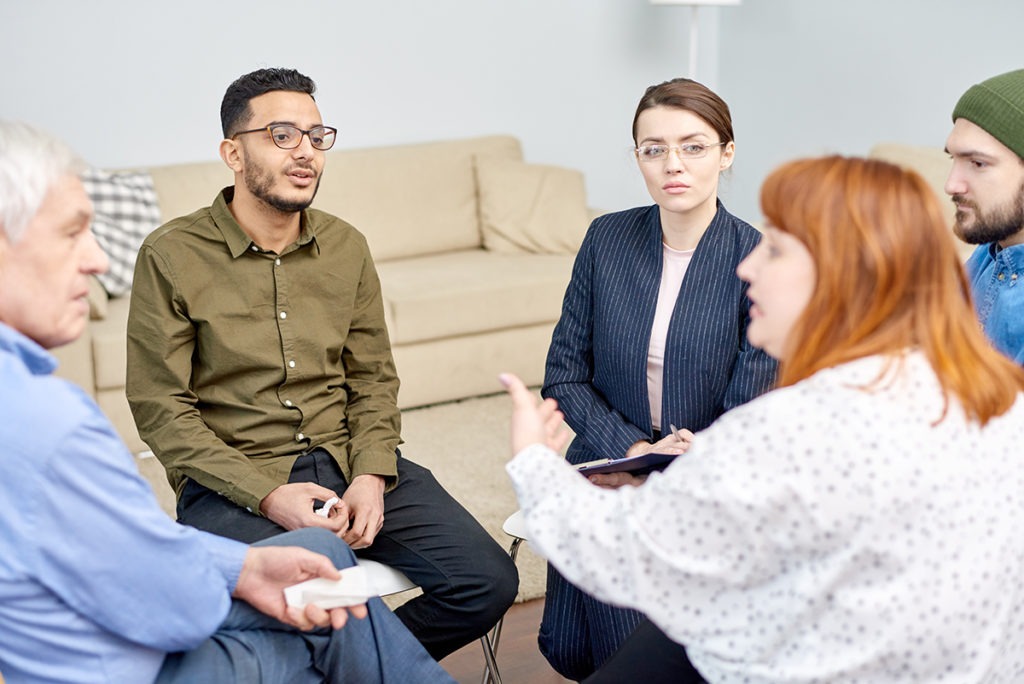Congratulations, you’ve completed residential treatment for substance abuse and are now an alumnus of the program. The medical care and individual therapy you received enabled you to get sober. Through hard work and a willingness to try new things, you’ve learned to feel good without drugs and alcohol. Also, you’ve learned coping skills that empower you to handle life’s challenges without substances. So, what’s next? Are you finished? Of course not. Lifelong recovery is a process. It goes on even after you complete treatment.
So when you graduate from the program and maybe even move back home, what’s next? For some, it’s a partial hospitalization (day treatment) or intensive outpatient program (IOP). The right path for you will be discussed with your treatment team, but the important thing to know is that you can still receive care even when your stay in a facility is over.
Who Are Alumni?
Like academic programs, treatment program graduates are alumni. Whether you have graduated from The Right Step Hill Country or our Houston-based program, you will be invited to join The Right Step’s alumni aftercare programs. Clients in these programs continue receiving guidance from addiction specialists, even after their residential stay or IOP program is complete. Continuing care, support and socializing can be a huge benefit of staying connected to others, as well as the official recovery community where you received treatment.
In alumni aftercare, clients come together to support each other. Through engaging with this community, you’ll be able to stay connected to other recovering clients in your area and form relationships that can support you in your personal journey and lifelong recovery. Beyond that, sharing your experiences and listening to others helps you learn. The other alumni group members have been in many of the same situations as you, and may be further along on the road to lifelong recovery. They probably face the same temptations or have encountered them at some point. Connecting with them after treatment can help you make the transition back to “real life” and learn how to protect lifelong recovery and sobriety.
The Importance of Staying Connected in Lifelong Recovery
Residential treatment provides tools that make sobriety achievable. Still, relapse remains a possibility, especially during the tenuous transition back to some of the life you knew before. Exposure to triggers such as people, places and situations where you used before will be more prominent after leaving the safety of the “treatment bubble.” This period will be when reinforcing your support and remembering your skills training will be needed most. Fellow alumni can help you choose to cope with the challenges of being near your family again or facing the demands of a challenging workload rather than fall back into old habits.
Finding the Courage to Move Forward
Even further into the lifelong recovery process, temptations continue existing around you. Connecting with people who know they don’t need substances to survive or have fun can benefit you. These connections can help you avoid temptation and have an alternative way to spend your time that won’t cause setbacks (in recovery or otherwise). In alumni aftercare, clients can forge solid relationships that, when they’re at their most vulnerable, provide validation of the most necessary kind. In friendships like these, those in recovery can replace constant refrains of shame and feeling like a screw-up with the renewal of friendships that have seen our darkest moments and remain.
Community-driven treatment such as this is crucial to lifelong recovery. Your community and support system can motivate you; these individuals can encourage your sobriety efforts. They can keep you accountable, and you can do the same for them. Alumni in your recovery program can be especially helpful in this aspect. They understand what you’re going through. They’ve been where you’ve been. They’re going where you’re going. You can help each other identify and avoid addiction triggers. You can hold each other accountable for lifelong recovery goals. In alumni aftercare, you can be each other’s biggest cheerleaders.
How to Get Connected in Lifelong Recovery
The Right Step provides a forum and meeting place for alumni to come together and experience all of the benefits mentioned above.
Through the program, The Right Step establishes a lasting social support network. Alumni aftercare programs and networks offer clients structure. Alumni learn, socialize and participate in volunteer projects together. Such activities provide a structure that can help individuals maintain sobriety. They can be involved in facilitating the healing process. With the support of Alumni Services, participants in the program can overcome post-treatment temptations. They can enjoy improved health that comes with lifelong recovery.
Continue Taking Steps Toward Lifelong Recovery
Recovery care and support don’t end with inpatient treatment. Every client treated at The Right Step can participate in alumni aftercare programs. Licensed clinicians lead these in-depth programs. Weekly aftercare groups give recovering individuals support and compassion. Alumni receive counseling just as thoroughly as they did during residential treatment. They receive access to addiction recovery resources and referrals. Such tools can make lifelong recovery and sobriety possible. Call The Right Step at 844.644.6665 to learn about and initiate addiction aftercare.






